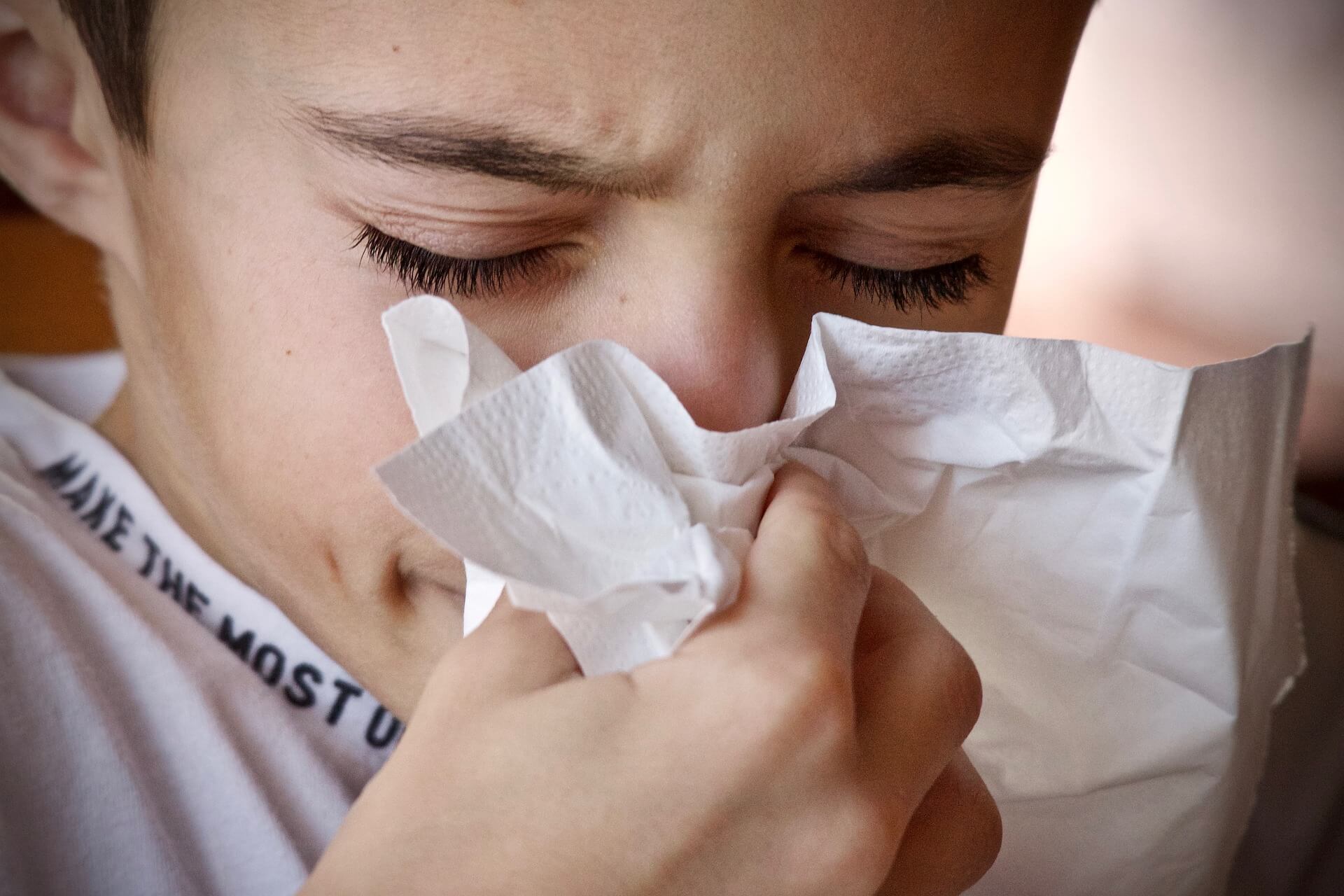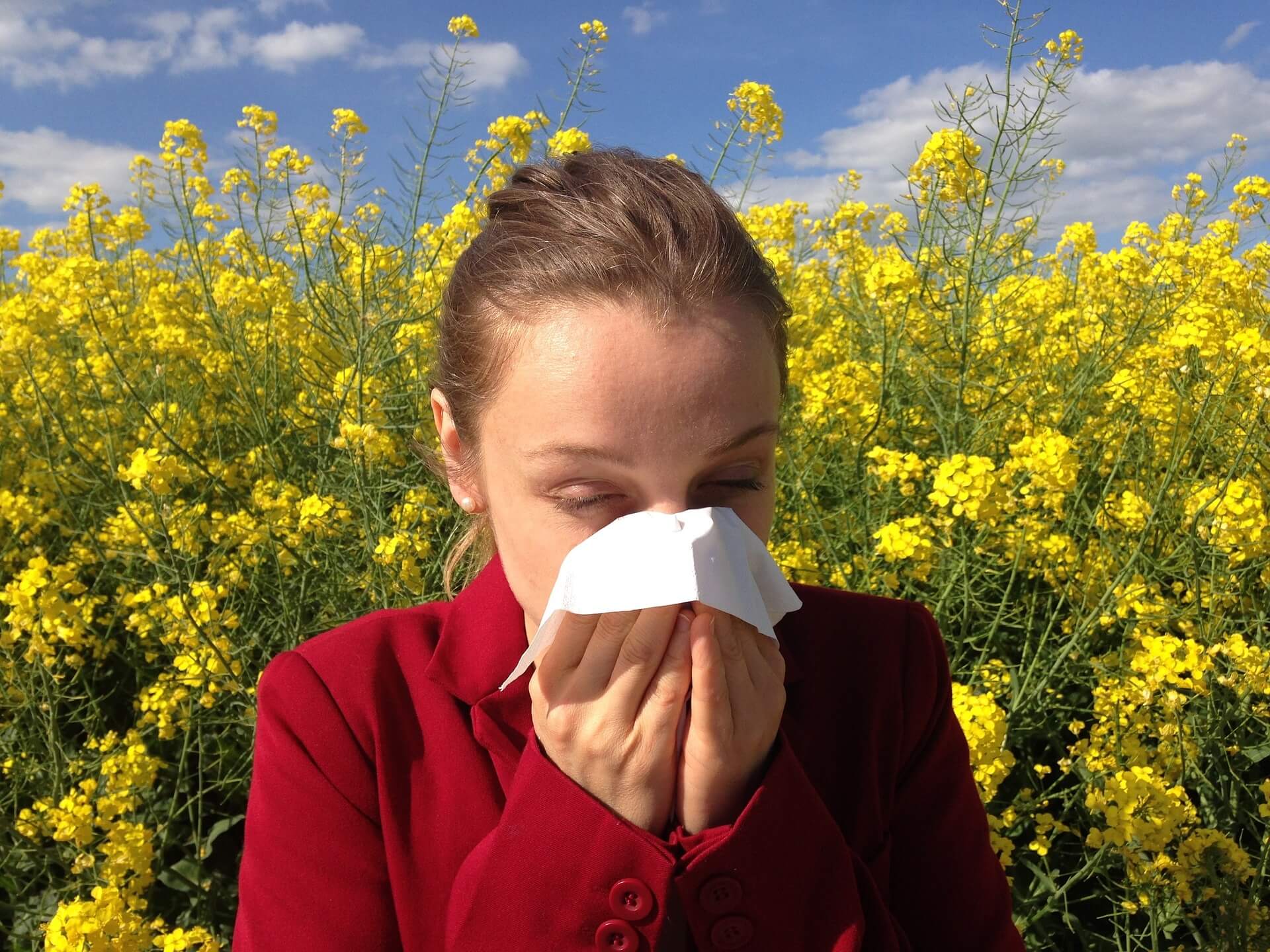Hay fever is a common condition. It’s an allergic reaction to pollen and the symptoms include a blocked nose, red, itchy eyes, sneezing and general fatigue. It means going outside during the pollen season is unpleasant and for some it even triggers asthma.
The majority of hay fever sufferers learn to avoid triggers, take medication and look forward to the end of the pollen season.
But did you know that some people allergic to pollen can also develop Pollen Food Allergy Syndrome (PFAS)?
What is oral allergy syndrome?
It’s when those people who are allergic to pollen also become allergic to certain foods. You may get an allergic reaction from eating some raw fruits and vegetables, nuts and grains.
Why does this reaction happen?
The allergy occurs because the protein particles of pollen and the protein particles of certain raw fruits, vegetables, nuts and grains are similar.
However, your immune system can’t tell the difference between pollen and the foods because of the similar protein particles and so it triggers a fight reaction. Basically, the body thinks it is fighting pollen even though it isn’t.
What pollens are people with PFAS allergic to?
Typically, people are allergic to Alder, Birch, Mugwort, Ragweed and Grass. The type of pollen you are allergic to affects the raw foods you can eat. For example, those allergic to grass or ragweed pollen should avoid watermelon. But if you are allergic to Mugwort, Alder or Birch pollen then watermelon is fine.
What foods could affect me?
Have a look at the chart in the article by Allergy Insider. It gives you a list of fruits, vegetables. nuts and grains next to each type of pollen. Foods to avoid eating raw include:
- Alder – Apple, cherry, celery, carrot, almonds and peanuts.
- Birch Pollen – Apple, banana, potato, tomato, hazelnuts and beans.
- Mugwort – Mango, carrot and celery.
- Ragweed – Watermelon, banana, cucumber, pepper and sunflower seeds
- Grass – Orange, melon, potato, tomato and peanut
What are the symptoms?
Symptoms can appear between a few minutes and a couple of hours after ingesting the food. In most cases the symptoms are mild. But if you have eaten large amounts of the raw food then the reaction may be severe, and you may need medical assistance.
Typical symptoms are:
- Swelling of lips, tongue and mouth
- Itching on the mouth or lips
- Tingling or scratchy throat
- Stomach ache
Do I have to avoid the foods on the list?
Sometimes you may be advised to avoid the foods altogether. But some people may be able to continue to eat the foods if they are peeled and cooked. This is because many allergenic substances are destroyed if the food is heated.
Cross- reaction allergy may sometimes only effect people during the pollen seasons, at other times there may be no reaction at all and you can eat, for example, watermelon without a problem.
How do I find out if I have Cross-Reactivity Allergy?
A skin prick test will confirm your allergy. It is a quick and painless way to find out what you need to know.
Can I have the test at VSM Pharmacy?
Yes, we have an Allergy Test and Treat Service. All you need to do is make an appointment and we will provide you with an accurate allergy blood test. Based on the results we can then dispense the relevant medication and offer you advice on allergy management.
How do I make an appointment?
Book online, pop in and have a word with a member of staff or give us a call on 01276 21002.




